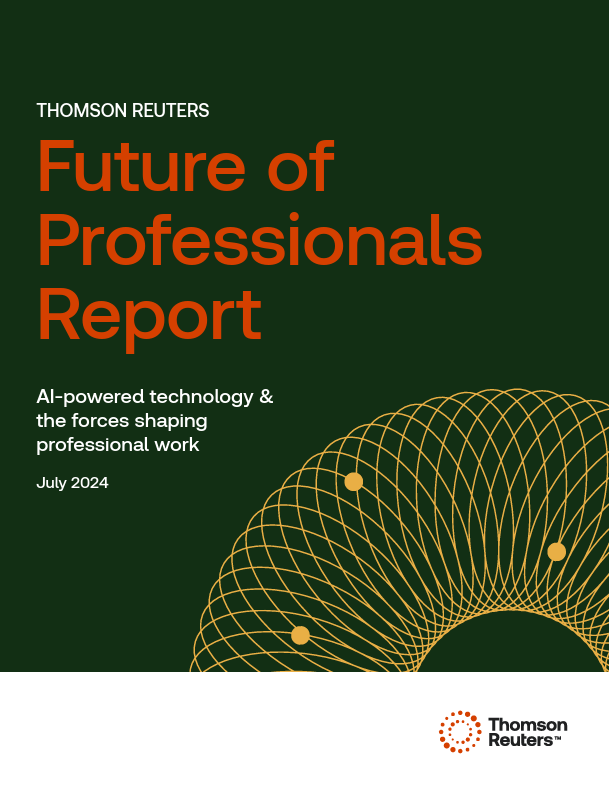Artificial intelligence (AI) is transforming the way professionals work in various fields. It can offer many benefits, such as increasing efficiency, accuracy, and innovation, but it also poses some challenges, such as disrupting existing workflows, creating ethical dilemmas, and affecting work-life and well-being. How can professionals leverage the opportunity of AI and avoid the downsides? The key is to use intentionality, which means being deliberate and conscious about one’s actions, goals, and values.
Intentionality in motivation
One of the aspects of intentionality is to keep one’s motivations front and center when making decisions and taking action. Motivations are the reasons why we do what we do, and they can vary from person to person and from situation to situation. According to the new report “Future of Professionals”, the top motivations cited by professionals in the legal industry are directly involving clients, producing high-quality advice, maintaining a healthy work-life balance, and continuing to develop one’s knowledge and skills.
AI can have both positive and negative impacts on these motivations. On the one hand, AI can enable professionals to provide better service and advice to their clients, by automating routine tasks, enhancing data analysis, and generating insights. AI can also help professionals to learn new skills and stay updated on the latest developments in their fields. On the other hand, AI can also create pressure and competition, by raising client expectations, disrupting traditional roles and structures, and requiring constant adaptation and upskilling.
Therefore, legal professionals need to be intentional about how they use AI to support their motivations, and not let it dictate or undermine them. For example, you can use AI to free up time and resources for more meaningful and creative work, such as building relationships with clients, solving complex problems, and developing new solutions. You can also use AI to enhance your learning and development, by accessing relevant and personalized information, feedback, and guidance.
Intentionality in work-life and well-being
Another aspect of intentionality is to balance one’s work-life and well-being, which means finding a healthy and sustainable way of working that supports one’s physical, mental, and emotional health. Work and well-being are closely intertwined, as work can have both positive and negative effects on one’s well-being, and vice versa. According to the same report by Thomson Reuters, more than half of the professionals surveyed said that their work had a positive impact on their mental health and well-being, while about a quarter said that their work had a negative impact.
AI can improve one’s work and well-being, by reducing stress, increasing flexibility, and creating new opportunities. It can also help legal professionals to work more efficiently and effectively, by automating tedious and repetitive tasks, reducing errors and risks, and providing support and assistance.
On the other hand, AI can also harm one’s work and well-being, by creating anxiety, isolation, and burnout. AI can create uncertainty, by threatening one’s job security, identity, and autonomy, and by raising ethical and legal questions. It can also create isolation and detachment, by reducing human interaction and empathy, and by creating a digital divide and a lack of diversity.
Therefore, professionals need to be intentional about how they balance their work-life and well-being in the age of AI, and not let it compromise or jeopardize them. For example, legal professionals can use AI to enhance their work and well-being, by setting clear and realistic goals, boundaries, and priorities, by seeking feedback and support, and by celebrating achievements and successes. Professionals can also use AI to protect their work and well-being, by taking breaks and disconnecting, engaging in self-care and wellness activities, and by seeking social and emotional connection and support.
AI is a powerful and pervasive force that is reshaping the way professionals work in various fields. It can offer many benefits, but it also poses some challenges, for both one’s motivation and one’s well-being. To fully leverage the opportunity of AI and avoid the downsides, legal professionals need to be intentional. By using intentionality, you can harness the power of AI to fulfill the promise of your profession and to balance work-life and well-being.

CoCounsel
Bringing together generative AI, trusted content and expert insights
Meet your AI assistant ↗










